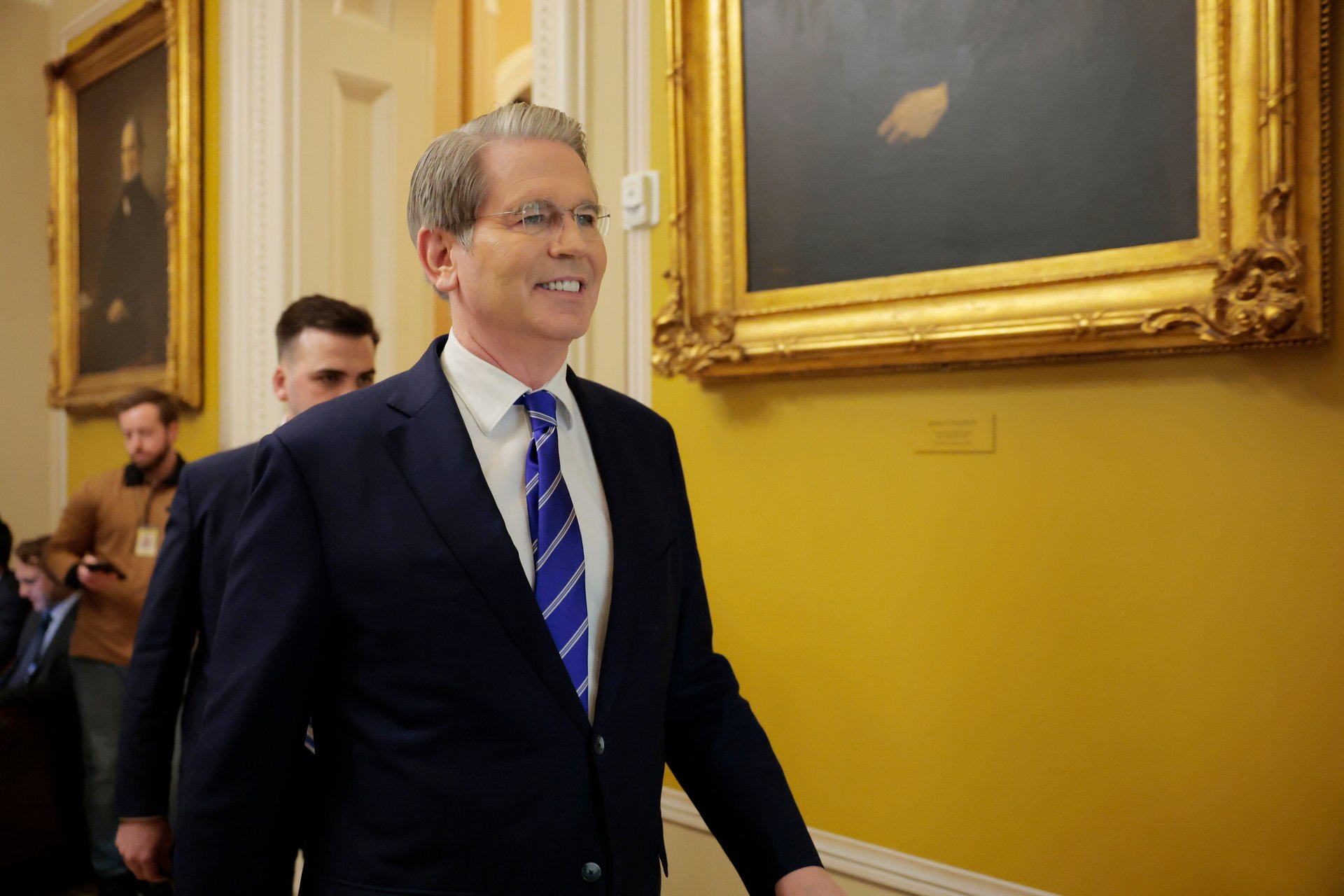Scott Bessent has a warning for China as it retaliates in the trade war
Treasury Secretary expects tariffs to bring countries to the negotiating table

As the trade war widens, China has vowed to hold firm against U.S. tariffs.
Suggested Reading
“The U.S. threat to escalate tariffs on China is a mistake on top of a mistake,” its Commerce Ministry said a statement. It continued, saying that Trump’s tariffs “once again exposes the blackmailing nature of the U.S.” and that “China will never accept it. If the U.S. insists on its own way, China will fight to the end.”
Related Content
U.S. Treasury Secretary Scott Bessent called China’s response a mistake in an interview with CNBC (CMCSA).
“I think it was a big mistake, this Chinese escalation, because they’re playing with a pair of twos,” Bessent said during an interview on CNBC’s “Squawk Box.” “What do we lose by the Chinese raising tariffs on us? We export one-fifth to them of what they export to us, so that is a losing hand for them.”
It’s not the first time the U.S. administration has used a card game analogy to describe international relations.
In a contentious Oval Office exchange earlier this year, Trump warned Ukrainian President Volodymyr Zelensky “ You don’t have the cards right now. With us you start having cards.” To which Zelensky responded: “I’m not playing cards. I’m very serious, Mr. President.”
Meanwhile, Bessent said in his appearance on CNBC that Trump’s tariffs will encourage countries to negotiate new trade agreements.
“I think you are going to see some very large countries with large trade deficits come forward very quickly,” Bessent said. “If they come to the table with solid proposals, I think we can end up with some good deals.”
Bessent has been under pressure to sell the tariffs to a nervous American public after the stock market has plunged over the past week and business leaders have warned of damage to the economy.
J.P Morgan Chase CEO Jamie Dimon warned in a letter to shareholders this week that the “recent tariffs will likely increase inflation and are causing many to consider a greater probability of a recession.”
And Goldman Sachs (GS) warned this week that the trade war could tip the United States into a recession. Goldman raised the chances of a recession to 45%, warning that tariffs may slow growth, hike prices, and cut investment.